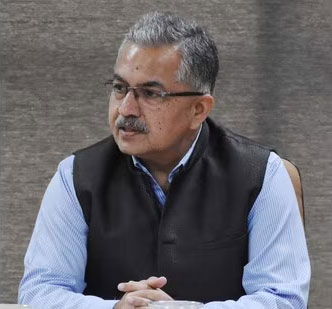Hindustan Times
Feb 3, 2023
1PF supercomputing system based on C-DAC’s Rudra servers to be installed at GMRT
The Centre for Development of Advanced Computing (C-DAC) and National Centre for Radio Astrophysics (NCRA) have come together to build a high-performance computing facility
Pune: The Centre for Development of Advanced Computing (C-DAC) and National Centre for Radio Astrophysics (NCRA) have come together to build a high-performance computing facility with a computing capacity of 1 PetaFlop for conducting real-time commensal search for FRBs (Fast Radio Bursts) and pulsars with the GMRT. The initiative is funded by the National Supercomputing Mission (NSM) and the system will be based on the indigenous Rudra server developed by C-DAC.
As a first step towards developing a globally competitive facility for Indian scientists, colonel A K Nath (retired), executive director, C-DAC; and professor Yashwant Gupta, centre director, NCRA have signed a memorandum of understanding (MoU) in the presence of Dr Vijay Bhatkar, the architect of India’s national initiative in supercomputing.
According to a C-DAC official, “The demanding real-time application will be an acid test for the resilience and robustness of the technology developed by C-DAC. This instrument aims to discover more than a few hundred fast transient sources with host galaxy association over the next few years of scientific operation. The successful execution of this project will enable transformational, high-impact science in time-domain astronomy with the GMRT along with being a trigger for cutting-edge technology development in the country.”
Colonel Nath informed that the C-DAC has a target to achieve 64 PetaFlops of cumulative computing power across the nation by the end of the year 2024. “It is worth noting that around 40PF computing power will be based on the indigenously developed Rudra servers being manufactured in India. Supercomputing systems with cumulative computing power of 24 PetaFlops have already been deployed at various premier academic institutions across the nation,” he said.

Col A K Nath (retired), executive director, C-DAC; and professor Yashwant Gupta, centre director, NCRA signed a MoU. (HT PHOTO)
Director general C-DAC E Magesh informed that the C-DAC is currently executing the Microprocessor Development Programme with the goal of designing and developing a family of microprocessors indigenously. “As part of this project, C-DAC has achieved significant progress in the development of the Vega series of microprocessors (dual core, quad core) which are based on cutting-edge technological designs. These processors will be useful in day-to-day applications like Smart Energy Meter, IoT devices, Multimedia Processing, AR/VR etc. The C-DAC’s roadmap for processors is to attain self-reliance in microprocessor development using indigenous design,” Magesh said.
The Centre for Development of Advanced Computing (C-DAC) recently organised the International Symposium on Quantum Computing Ecosystem on January 30 and 31, 2023. The two-day symposium brought together national and international players concerned with all subsystems required to build a quantum computer.
The symposium saw the participation of over 67 speakers and panellists who covered various topics related to quantum computing, including quantum processor development using different technologies, control and measurement electronics, error correction, cryostat and dilution refrigerators, system software stack, algorithm, and standardisation.
Representatives from academic institutions such as the University of Calgary, Oxford University, Moscow State Pedagogical University, and the IITs as well as research and development (R&D) labs including TIFR Mumbai, IISc Bangalore, and SAMEER Mumbai were in attendance. Companies such as QuantWare, IBM Quantum, TCS, Nvidia, Keysight Technologies and I-Hub QTF also participated in the symposium.
Colonel A K Nath (retired), executive director, C-DAC, said, “In order to establish India’s place in the quantum computing technology arena, C-DAC feels that it can take rapid strides to work on system software and protocols to integrate its existing HPC systems with an assembled off-the-shelf quantum computer with third-party support.”